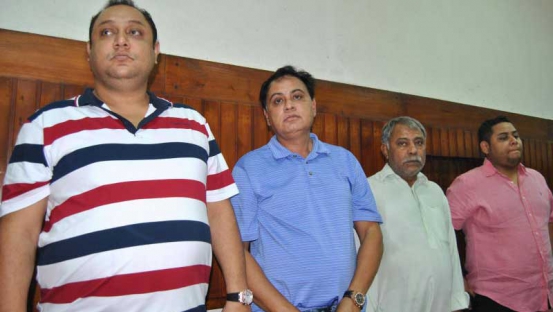×
The Standard e-Paper
Join Thousands Daily

Two months after the controversial extradition of Baktash and Ibrahim to face drug charges in the US, their family in Mombasa remains inconsolable.
On January 30 this year, two Kenyan brothers, Baktash and Ibrahim Akasha, an Indian national Vijaygiri Goswami and a Pakistani national Gulam Hussein were taken out of the country. They were to face drug trafficking charges in a New York court.